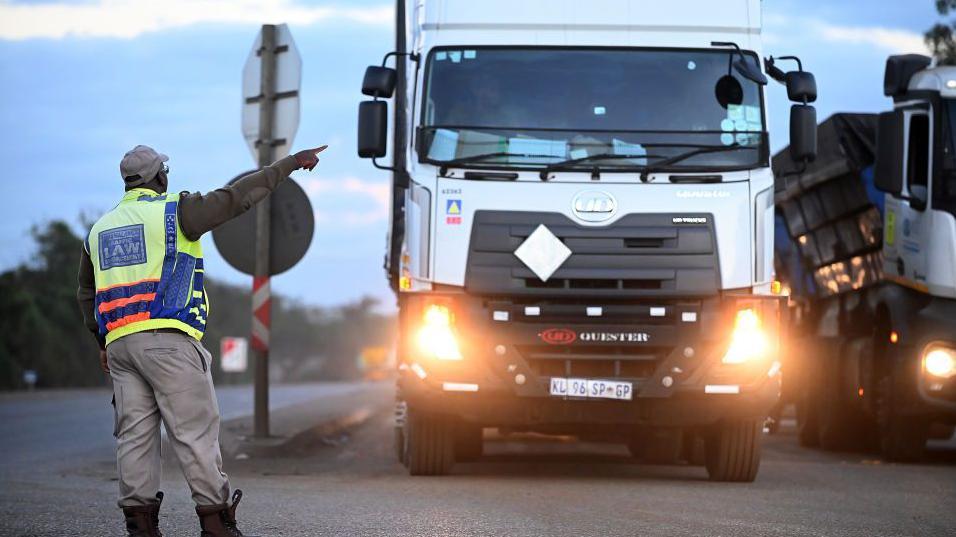South Africa has temporarily closed one of its busiest border crossings with Mozambique due to escalating violence stemming from post-electoral protests in Mozambique. The protests erupted following the disputed presidential election that resulted in a significant victory for the ruling Frelimo party, which has sparked unrest in various cities. Reports indicate that there have been incidents of vehicles being set on fire at the Lebombo port of entry, prompting South African authorities to prioritize public safety by shutting down the border until further notice. As one of southern Africa’s four busiest land ports, Lebombo holds strategic importance, situated approximately 110 kilometers from Maputo, the capital of Mozambique, and about 440 kilometers from Pretoria, South Africa’s capital. In light of the closure, travelers have been advised to utilize alternative crossings.
The protests have instigated severe clashes, particularly near the border area of Ressano Garcia, according to Michael Masiapato, the commissioner of South Africa’s Border Management Authority (BMA). Although the violence has not directly impacted the South African side, Masiapato emphasized the necessity of implementing safety measures to protect travelers and secure the border. The tensions in Mozambique have led to the destruction of property, with reports of a burnt immigration office on the Mozambican side, indicating a serious escalation in the intensity of the protests. Furthermore, seven Mozambican officials have sought refuge in South Africa due to fears for their safety amidst the unrest.
Post-election protests in Mozambique gained momentum after the Frelimo candidate, Daniel Chapo, was declared the winner by an overwhelming majority of 71% of the votes. Opposition leader Venâncio Mondlane, who garnered only 20% of the votes, chose to go into hiding amid increasing threats to his safety. The fears were compounded by the recent killings of his aide and lawyer, an event that heightened tensions further and provoked widespread demonstrations. Human Rights Watch has reported at least 18 fatalities linked with confrontations between protesters and police. Concurrently, restrictions on internet connectivity and social media have surfaced, illustrating the government’s attempt to control the situation alongside ongoing civil unrest.
In response to the turmoil, a general strike called by Mondlane has persisted despite government appeals for civilians to return to their jobs. The unrest culminated in a significant threat from Cristóvão Chume, Mozambique’s Defence Minister, who warned of military deployment in anticipation of nationwide protests scheduled for Thursday. Chume framed these actions as necessary to maintain the “democratically established power.” Such statements suggest a deteriorating political climate where the government’s stance appears increasingly repressive, aimed at quelling dissent rather than fostering dialogue.
The social consequences of the protests highlight the deep divisions and dissatisfaction within the Mozambican populace against a backdrop of political manipulation and alleged electoral malpractice. With vital infrastructure and everyday lives now caught in the crossfire, the situation at the border not only reflects the volatile dynamics within Mozambique but also raises questions about regional stability. The international community is closely watching these developments, as prolonged unrest poses risks not only within Mozambique but also its neighboring countries, as reflected in South Africa’s preemptive measures in border management.
Ultimately, this closure poses significant implications for trade and travel in the region. The Lebombo border has traditionally facilitated robust economic exchanges between South Africa and Mozambique, and the closure threatens to disrupt these vital links. Moreover, the unfolding events serve as a stark reminder of the risks associated with electoral processes in the region and the potential for violent outcomes when governance fails to ensure transparency and accountability. Both South Africa and Mozambique are now at a crossroads, grappling with the consequences of political unrest that underscores the urgent need for democratic reforms and humanitarian considerations to restore stability and public safety.

